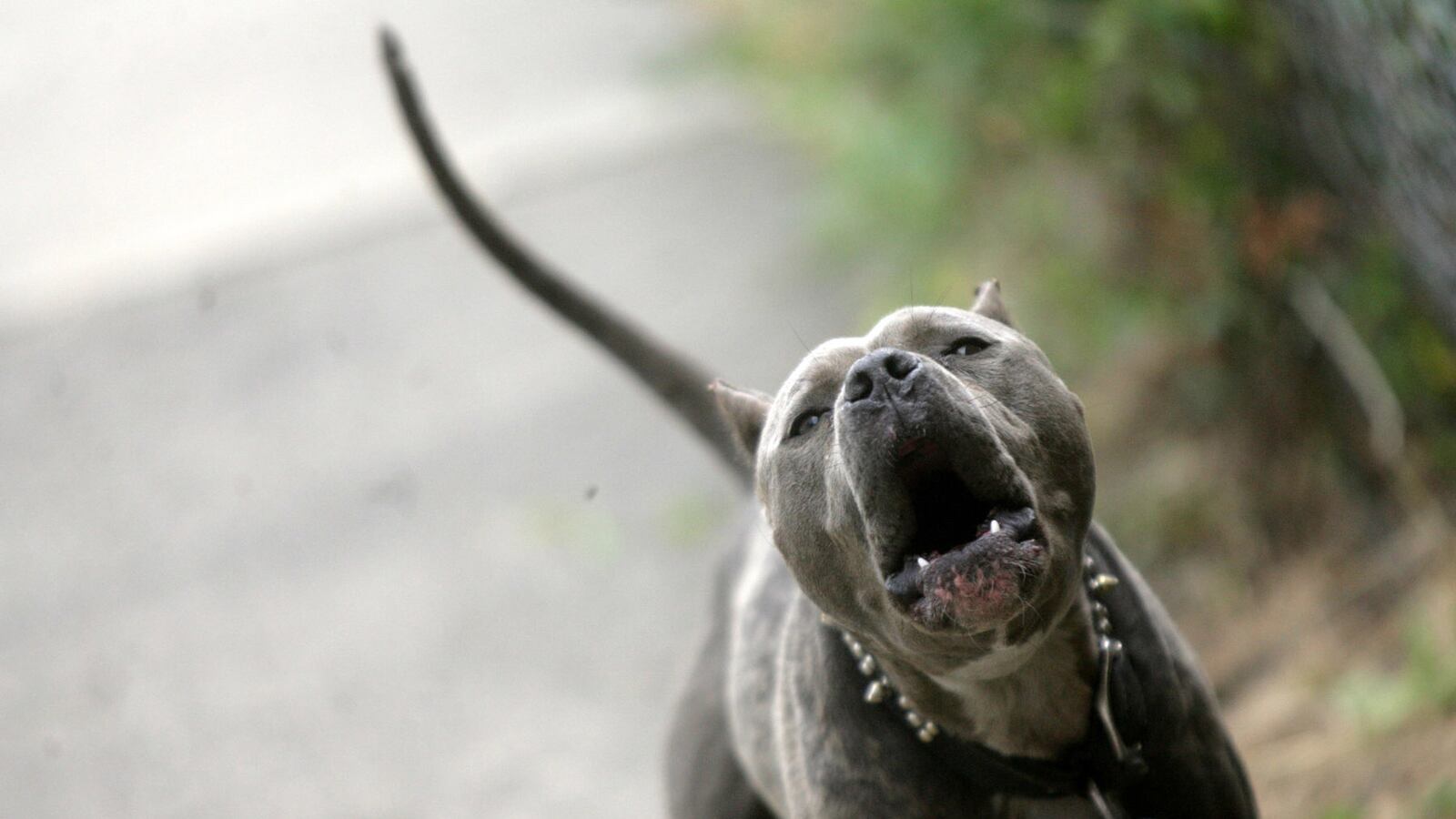When you learn a second language—even if you live in that language for a decade and a half, work, pray, fall in love, go to parties in that language—even then, there are always new words to discover. Surprises when you open the newspaper.
The other day, on a beautiful, lazy Friday afternoon in the holy city of Jerusalem, I learned a new Hebrew phrase: leshasot klavim—"to set dogs [on a person]."

In this past weekend’s Haaretz, writer Gideon Levy interviewed Mohammad Amla, a Palestinian day-laborer who for the past twelve years has supported his family (including the health care expenses of his deaf daughter) with the money he makes as a handyman in central Israel. He lives outside of Hebron but there’s always a way to get through Israel’s Security Barrier; once on the other side, Amla more often than not has obtained a legal work permit through the ungentle and wildly expensive services of an Israeli contractor. Between travel to and from Tel Aviv, rent on the dilapidated apartment he shares with six other men, and bribing his handlers, Amla doesn’t have much left at the end of the month, but even so, he told Levy, the money has been just enough to make it worth the effort.Except that a few weeks ago, soldiers waited in ambush at one of the holes in the barrier. They waited with dogs.
The soldiers started firing rubber bullets at [Amla and two friends], and then another group of seven soldiers emerged from the Palestinian side of the fence. They were masked and accompanied by dogs. The frightened young men tried to continue in their flight back to their village, and then the soldiers unleashed the dogs [shasu klavim] on them.
“The dog jumped on me,” says Amla, “grabbed me forcefully, put his claws on my back and then also grabbed me by the neck with his teeth…. I fell facedown. I was suffocating. I felt that I was dead, dead. Unbelievable pain. And I was shouting to the soldiers: ‘Take it [the dog], release me,’ and they didn’t do anything.”
This is far from the first time that Israel has been caught setting dogs on unarmed Palestinians. The military maintains it suspended the practice in 2011, but multiple eyewitnesses and/or victims have come forward and provided testimony that attack dogs are still in use. One case involves an innocent bystander; another, nonviolent protestors (click the second link for video of the latter event). Moreover, in each of these cases, including Amla’s, dogs were only one source of violence deployed by the soldiers in question: Palestinians typically also find themselves kicked, beaten, or shot at with rubber bullets, and in one case, a soldier dropped a rock directly on a man’s head as he lay—bitten, beaten, and bloodied—on the ground.
Each of these stories is horrible. Each is horrifying. But Amla’s contains two further truths that official Israel has long refused to admit.
The first: Palestinians get around the Security Barrier every day. They supply Israel with cheap, easily exploited labor, and are only stopped when the authorities want to make an example of someone—in which case permits are of no use because (as Amla’s story demonstrates) dogs, fists, and rubber bullets are unleashed before any questions are asked.
The second truth is buried so deep in the well-worn story of the decades-long occupation that it’s almost invisible: The dogs, and the soldiers who handled them, were on the Palestinian side of the fence. Israel is at complete liberty to do what it wants, where it wants, on the West Bank, and the point of its behavior is not merely to keep the respective peoples on their respective sides of a fence constructed ostensibly for that purpose. The point is to demonstrate Israel’s freedom to disrupt and control Palestinian lives at will, and to punish those who question that freedom.
It’s odd that after all these years and all this writing about the occupation and its inhumanities, I managed to miss “leshasot klavim,” but these things happen.
The real problem is that official Israel is banking on the fact that a lot of us will miss the phrase, and that even more of us won’t notice the activity. That we’ll sit under the bright Jerusalem sky or in our favorite coffee shops in Manhattan, Chicago, and Los Angeles, and Mohammad Amla will mean as little to us as he means to them. That we won’t give a moment’s thought to Jewish soldiers setting attack dogs on a refugee people.






